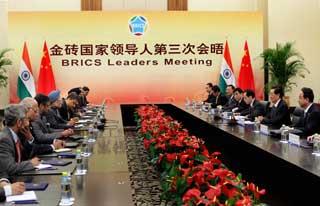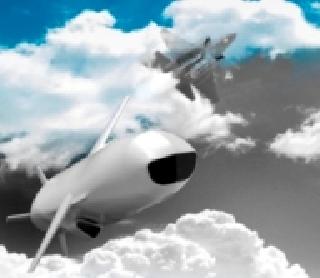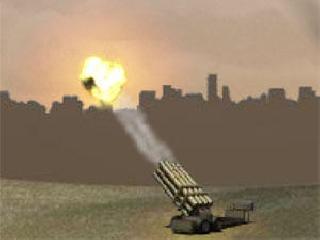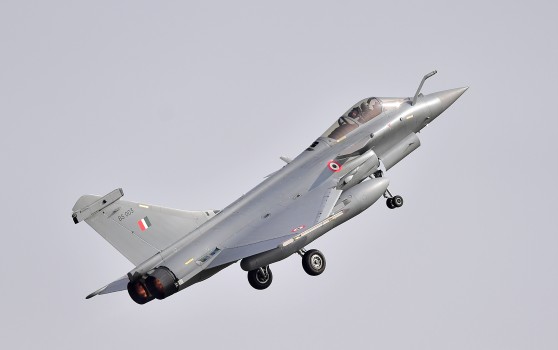
Prime Minister Manmohan Singh and Chinese President Hu Jintao at a delegatin level talk at Sanya, China on Wednesday. Photo: PTI.
SANYA, CHINA (PTI): In a major breakthrough, India and China have agreed to restore full defence cooperation, with a high-level military delegation expected to come here in June and an in-principle agreement reached for setting up a mechanism for consultations and coordination on border affairs.
The decisions were arrived at during a 50-minute meeting between Prime Minister Manmohan Singh and President Hu Jintao here where the Indian leader also voiced concern over the growing trade imbalance in favour of China, evoking an assurance that it would be addressed.
During the "very productive, warm and friendly" meeting, Singh and Hu launched the 'Year of India-China Exchanges in 2011', National Security Adviser Shivshankar Menon told reporters.
As part of the measure, there will be a series of visits including by an Indian military delegation to China besides exchange of visits by senior political leaders, holding of strategic economic dialogue, official consultations and people-to-people contacts, he said.
"It has been agreed that a multi-command Indian military delegation will visit China later this year," Menon said.
Sources said the delegation could visit as early as June and is expected to be headed by a Corps Commander level officer of the rank of Lt General.
The decision to send a military delegation to China marks an end to the freeze on high-level defence exchanges by India after the then Northern Army Commander Lt Gen B S Jaswal was denied a proper visa in July last year for travel to Beijing because he served in Jammu and Kashmir.
The Indian decision comes amid apparent moves by China to reverse its two-year policy of giving stapled visas to people hailing from Jammu and Kashmir.
The NSA, however, insisted that the defence exchanges were never frozen as levels of communications at various levels, including at border commander level, were maintained.
He said the two countries will be discussing further exchanges and visits during the year.
To a question, Menon said the issue of stapled visas was not discussed during the meeting between Singh and Hu as "work" is in progress in this regard.
In his opening remarks at the meeting, Singh told Hu that India was "keen to expand areas of cooperation" with China.
"I wish to reaffirm the desire to strengthen strategic and economic partnership with China in every possible way," the Prime Minister said.
As the two leaders greeted each other warmly, Singh pointed out to Hu that they had met a number of times, including on the sidelines of G-20 and BRIC Summits.
Hu said it was pleasure to meet Singh and that he looked forward to exchanging views on bilateral and international issues of mutual interest.
Menon said during the meeting, the two sides had reached an in-principle agreement for setting up working Mechanism for Consultations and Coordination on Border Affairs to handle maintenance of peace and tranquility along the boundary.
The mechanism at official-level, he explained, will explore the areas of cooperation in border areas like border trade and movement.
Menon said as part of increased exchanges, a number of high level visits will take place to China during this year.
While reviewing the bilateral relations, Singh and Hu expressed satisfaction at the steady growth of relations, Menon said.
Singh and Hu took stock of trade and economic relations and were convinced that these were on track to achieving the USD 100 billion by 2015.
Talking about trade imbalance, the Prime Minister sought better access for Indian goods in Chinese markets, particularly in IT, pharma and engineering sectors.
The Chinese President agreed that trade imbalance was a serious issue and said a series of measures were being taken to address it.
In this context, the two sides will be holding strategic economic dialogue.
At the meeting, the Prime Minister invited Hu to visit India who accepted and said a mutually-convenient date would be worked out. The Chinese President also invited Singh for a bilateral visit which was accepted.
The two leaders asked their Special Representatives to continue working out a solution to the boundary issue.
So far, 13 rounds of talks have been held between the SRs on the issue while the next round is scheduled to be held in New Delhi.
Asked about when the 14th round could be held, Menon said there were no dates yet.
Earlier, China has proposed to India a consultation and coordination mechanism to resolve "border issues" and to maintain peace and stability at the border regions before the boundary issue is resolved, the official Xinhua news agency reported. The proposal was made by the Chinese President, Hu during his meeting with Singh.
Hu said he hoped the two countries solve differences properly and safeguard peace and stability.
"China is willing to further push forward negotiations on border issues on the basis of peace and friendliness, equal consultation, mutual respect and understanding," state run Xinhua quoted Hu as proposing to Singh.
The two sides should consider setting up a consultation and coordination mechanism on border issues so as to achieve consensus as soon as possible and to better maintain peace and stability at the border regions before the issues are solved, Hu said.
China was apparently proposing a mechanism to address issues before a settlement is reached.
The Xinhua report said that the two leaders agreed to further deepen China-India strategic cooperative partnership so as to push forward the development of the two countries.
They also vowed to promote peace, stability and prosperity in Asia as well as the world.
The two countries should maintain high-level exchanges and to enhance political mutual trust, Hu said.
China and India should expand exchanges between governments, legislative bodies and political parties.
The two sides should take the advantage of political dialogue and consultation to exchange views timely on bilateral ties and other important issues of common concern, Hu said.
Secondly, Hu suggested the two sides expand economic and trade cooperation for mutual benefit.
China and India should hold the first meeting under the strategic and economic dialogue mechanism as soon as possible, Hu said.
The two sides should actively promote cooperation in fields such as infrastructure, information technology, investment, project contracting and banking sector to achieve a win-win result.
Thirdly, Hu suggested the two sides broaden people-to-people exchanges so as to enhance mutual understanding.
 Previous Article
Previous Article Next Article
Next Article













The Indian Air Force, in its flight trials evaluation report submitted before the Defence Ministry l..
view articleAn insight into the Medium Multi-Role Combat Aircraft competition...
view articleSky enthusiasts can now spot the International Space Station (ISS) commanded by Indian-American astr..
view article